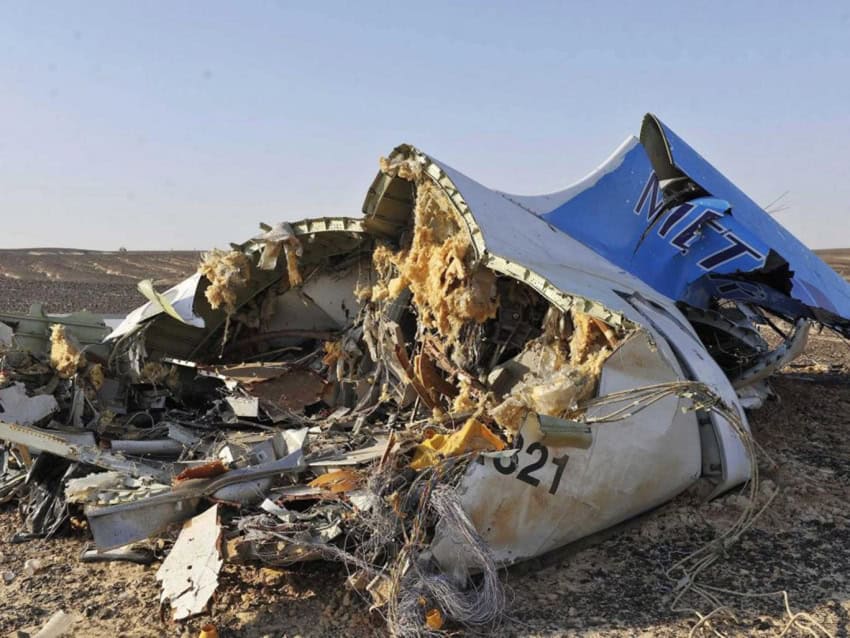CAIRO (Web Desk) – French air accident investigators have ruled out technical failure as the cause of the Russian jet crash in Egypt’s Sinai desert last week that killed 224 people.
Their finding, based on examination of the flight data recorders, comes after evidence from British intelligence supporting the view that there was a bomb onboard Metrojet flight 9268.
“Everything was normal during the flight, absolutely normal, and suddenly there was nothing,” an accident investigator cited by AFP said. The BBC quoted a French aviation official saying the crash was not due to technical failures, which would rule out engine failure, a theory put forward by Russia, Financial Times reported.
France is involved in the investigations because Airbus, a French company, manufactured the A321 jet.
The cause of the crash has been disputed, with the UK and US leaning towards a bomb while Russia and Egypt have repeatedly said it is too early to draw conclusions.
The Egyptian committee investigating the crash said that “all scenarios were possible” to explain the crash. Ayman al Muqqadem, the head of the committee said that an unidentified sound heard in the last second of the recording by the cockpit voice recorder required spectral analysis before a conclusion could be reached.
Russian state media quoted a Russian official involved in the investigation as saying that Moscow had no data about an explosion.
“At the moment we can only speak of the existence of ambiguous sounds recorded by the flight recorders,” Interfax quoted the officials as saying. “The Russian experts will ask French investigators and the Egyptian commission for confirmation of the identification of an explosion aboard the aircraft.”
Moscow repeated that its decision to suspend flights to Egypt on Friday had been a safety precaution and did not mean it now assumed that a bomb had brought the aircraft down.
Flights to Sharm el-Sheikh had already been suspended by the UK, Ireland, Germany, the Netherlands, Turkey and Denmark after warnings by UK intelligence officials that the plane was most likely brought down by a bomb placed in the cargo hold before take-off.
But the Russian flight ban is the biggest blow to the Egyptian economy, which relies heavily on large numbers of Russian tourists during the winter months.
The British intelligence assessment that the crash was caused by a bomb was based on chatter — intercepted communications — between militants in the Sinai Peninsula.
Sameh Shoukry, Egypt’s foreign minister said on Saturday that his country understood other counties concern about the security of their nationals following the Metrojet crash, but he complained that information suggesting a bomb was responsible had not been shared with Cairo.
“The information we have heard about has not been shared with Egyptian security agencies in detail,” he said. “We were expecting that the technical information would be provided to us.”
It has also emerged that a Thomson Airways flight in August came within 1,000ft of a rocket as it approached Sharm el-Sheikh. The Daily Mail said the flight from London Stansted was forced to take evasive action after the pilot spotted the missile speeding through the air.














